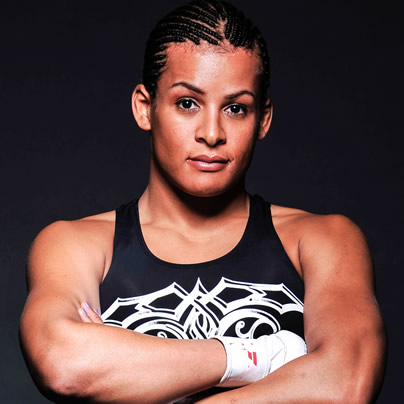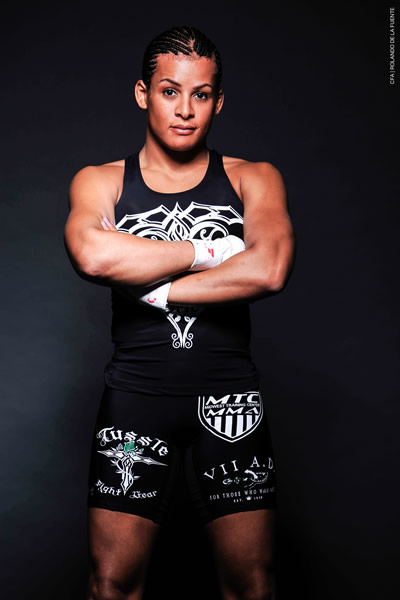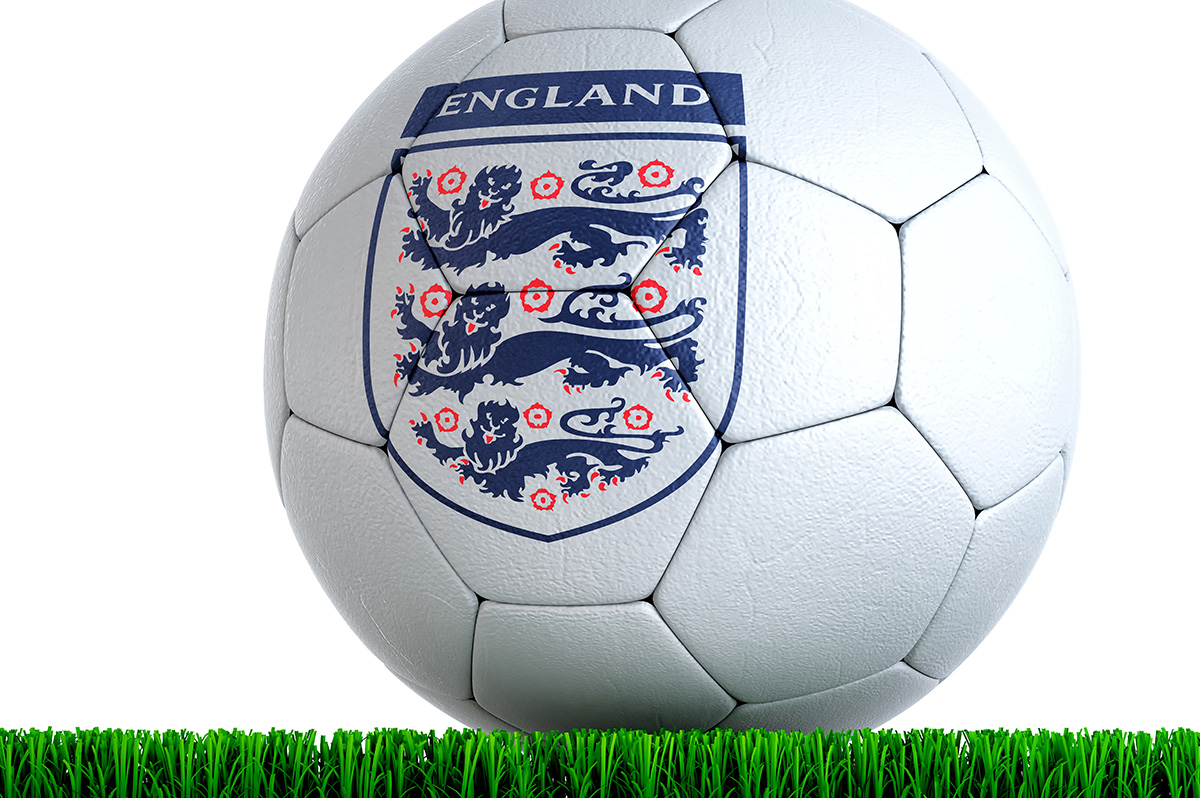Sports
On the ‘GO!’
LGBT sports group offers several resources


Mixed Martial Arts fighter Fallon Fox. Combating the type of transphobic commentary she’s faced is part of the mission of GO! Athletes. (Photo by Rolando de la Fuente; courtesy CFA)
With the LGBT sports movement reaching new highs over the past three years, there has been some crossover in the advocacy groups in terms of what they’re trying to accomplish.
One of the many things discussed at the LGBT Sports Summit in Portland last June was the need for collaboration among the various groups and establishing niche targets for their advocacy.
One group that has found its niche is GO! (Generation Out) Athletes. The group was formed in 2008 by seven current and former LGBT athletes who came together to discuss the different issues and challenges that are common among LGBT athletes. The result has been to create a national network of current and former LGBT student-athletes and allies at the high school, collegiate and post-graduate levels that serves to educate and empower.
Their services include confidential peer support, consultation and workshops for coaches, staff and athletes, leadership meetings, providing education materials and speaking at school and community events.
They are currently in the midst of two international Twitter campaigns utilizing their LGBT sports network to respond to negative blog posts and commentary about two hot button topics — Fallon Fox and the Sochi Olympics. The underlying goals of the campaigns are to educate and raise awareness for specific events or causes.
The #fight4fallon campaign was launched to combat transphobic commentary and disrespectful treatment towards Mixed Martial Arts (MMA) fighter Fallon Fox. UFC (Ultimate Fighting Championship) fighter Matt Mitrione, who was suspended and fined for his transphobic rant against Fox, recently made a public apology, due in part to the backlash from the GO! Athletes campaign.
“We had several people reach out from the MMA community,” says Anna Aagenes, executive director of GO! Athletes. “The #fight4fallon campaign has served to build unexpected connections.”
The second campaign, #out4olympics was launched to support the LGBT Olympic athletes who will soon be competing on the world stage despite the severe anti-LGBT laws currently in place in Russia. The campaign will be retooled in the coming months as the Sochi Games will begin onFeb. 7, 2014.
Once a month, GO! Athletes representatives hold conference/network calls with their national network of student-athletes. The calls, which sometimes include as many as 35 athletes, are a way for people to check in about their lives. The student-athletes can either speak or just listen.
“We have begun to reach out to K-12 student-athletes,” Aagenes says. “The network is comprised of closeted and out athletes and the conversations vary from empowerment to choosing an LGBT-friendly college.”
Based in Philadelphia, GO! Athletes have recently taken the steps to establish national chapters with Washington being the pilot city. The group is hoping to develop a mentorship program in D.C. aligning former athletes with current athletes to help them through the coming out process.
“We are lucky to have positive momentum with athletes and administrators,” says Brian Goldthorpe, a D.C. resident and director of communications. “We are looking to fill critical needs and delivering for folks at the highest level. In 2014, we will begin establishing connections with the LGBT sports teams of Washington D.C.”
Another facet of the GO! Athletes organization is their Collegiate Ambassadors, who serve the critical role of representing the voices of the LGBT student-athlete community and connecting universities with the national GO! network.
One of the athletes in D.C. is Craig Cassey, a Georgetown University student and former track athlete.
“One of my roles is to reach out to athletes and administrators on campus,” Cassey says. “I help them to understand so they can make better decisions in the future. It has been inspirational for me to help shape our own culture.”
As the organization continues to grow, they will be trying to create sustainable national chapters and student groups in multiple cities across the United States. More information on their outreach is available at goathletes.org.
Fallon Fox will fight in a Championship Fighting Alliance (CFA) match on Oct. 12 in Coral Gables, Fla., against Ashlee Evans-Smith.
India
Anaya Bangar challenges ban on trans women in female cricket teams
Former Indian cricketer Sanjay Bangar’s daughter has received support

Anaya Bangar, the daughter of former Indian cricketer Sanjay Bangar, has partnered with the Manchester Metropolitan University Institute of Sport in the U.K. to assess her physiological profile following her gender-affirming surgery and undergoing hormone replacement therapy.
From January to March 2025, the 23-year-old underwent an eight-week research project that measured her glucose levels, oxygen uptake, muscle mass, strength, and endurance after extensive training.
The results, shared via Instagram, revealed her metrics align with those of cisgender female athletes, positioning her as eligible for women’s cricket under current scientific standards. Bangar’s findings challenge the International Cricket Council’s 2023 ban on transgender athletes in women’s cricket, prompting her to call for a science-based dialogue with the Board of Control for Cricket in India and the ICC to reform policies for trans inclusion.
“I am talking with scientific evidence in my hand,” Bangar said in an interview posted to her Instagram page. “So, I hope, this makes an impact and I will be hoping to BCCI and ICC talking with me and discussing this further.”
On Nov. 21, 2023, the ICC enacted a controversial policy barring trans women from international women’s cricket. Finalized after a board meeting in Ahmedabad, India, the regulation prohibits any trans player who has experienced male puberty from competing, irrespective of gender-affirming surgery or hormone therapy. Developed through a 9-month consultation led by the ICC’s Medical Advisory Committee, the rule aims to safeguard the “integrity, safety, and fairness” of women’s cricket but has drawn criticism for excluding athletes like Canada’s Danielle McGahey, the first trans woman to play internationally. The policy, which allows domestic boards to set their own rules, is slated for review by November 2025.
Bangar shared a document on social media verifying her participation in a physiological study at the Manchester Metropolitan University Institute of Sport, conducted from Jan. 20 to March 3, 2025, focused on cricket performance. The report confirmed that her vital metrics — including hemoglobin, blood glucose, peak power, and mean power — aligned with those of cisgender female athletes. Initially, her fasting blood glucose measured 6.1 mmol/L, slightly above the typical non-diabetic range of 4.0–5.9 mmol/L, but subsequent tests showed it normalized, reinforcing the study’s findings that her physical profile meets female athletic standards.
“I am submitting this to the BCCI and ICC, with full transparency and hope,” said Bangar. “My only intention is to start a conversation based on facts not fear. To build space, not divide it.”
In a letter to the BCCI and the ICC, Bangar emphasized her test results from the Manchester Metropolitan University study. She explained that the research aimed to assess how hormone therapy had influenced her strength, stamina, hemoglobin, glucose levels, and overall performance, benchmarked directly against cisgender female athletic standards.
Bangar’s letter to the BCCI and the ICC clarified the Manchester study was not intended as a political statement but as a catalyst for a science-driven dialogue on fairness and inclusion in cricket. She emphasized the importance of prioritizing empirical data over assumptions to shape equitable policies for trans athletes in the sport.
Bangar urged the BCCI, the world’s most influential cricket authority, to initiate a formal dialogue on trans women’s inclusion in women’s cricket, rooted in medical science, performance metrics, and ethical fairness. She called for the exploration of eligibility pathways based on sport-specific criteria, such as hemoglobin thresholds, testosterone suppression timelines, and standardized performance testing. Additionally, she advocated for collaboration with experts, athletes, and legal advisors to develop policies that balance inclusivity with competitive integrity.
“I am releasing my report and story publicly not for sympathy, but for truth. Because inclusion does not mean ignoring fairness, it means measuring it, transparently and responsibly,” said Bangar in a letter to the BCCI. “I would deeply appreciate the opportunity to meet with you or a representative of the BCCI or ICC to present my findings, discuss possible policy pathways, and work towards a future where every athlete is evaluated based on real data, not outdated perceptions.”
Before her transition, Bangar competed for Islam Gymkhana in Mumbai and Hinckley Cricket Club in the U.K., showcasing her talent in domestic cricket circuits. Her father, Sanjay Bangar, was a dependable all-rounder for the Indian national cricket team from 2001 to 2004, playing 12 test matches and 15 One Day Internationals. He later served as a batting coach for the Indian team from 2014 to 2019, contributing to its strategic development.
Cricket in India is a cultural phenomenon, commanding a fanbase of more than 1 billion, with more than 80 percent of global cricket viewership originating from the country.
The International Cricket Council, the sport’s governing body, oversees 12 full member nations and more than 90 associate members, with the U.S. recently gaining associate member status in 2019 and co-hosting the 2024 ICC Men’s T20 World Cup. The BCCI generated approximately $2.25 billion in revenue in the 2023–24 financial year, primarily from the Indian Premier League, bilateral series, and ICC revenue sharing. The ICC earns over $3 billion from media rights in India alone for the 2024–27 cycle, contributing nearly 90 percent of its global media rights revenue, with the BCCI receiving 38.5 percent of the ICC’s annual earnings, approximately $231 million per year.
Women’s cricket in India enjoys a growing fanbase, with over 300 million viewers for the Women’s Premier League in 2024, making it a significant driver of the sport’s global popularity. The International Cricket Council oversees women’s cricket in 12 full member nations and over 90 associate members, with the U.S. fielding a women’s team since gaining associate status in 2019 and competing in ICC events like the 2024 Women’s T20 World Cup qualifiers. The BCCI invests heavily in women’s cricket, allocating approximately $60 million annually to the WPL and domestic programs in 2024–25, while contributing to the ICC’s $20 million budget for women’s cricket development globally. India’s media market for women’s cricket, including WPL broadcasting rights, generated $120 million in 2024, accounting for over 50 percent of the ICC’s women’s cricket media revenue.
“As a woman, I feel when someone says that they are women, then they are, be trans or cis. A trans woman is definitely the same as a cis woman emotionally and in vitals, and specially, when someone is on hormone replacement therapy. Stopping Anaya Bangar from playing is discrimination and violation of her rights. It is really sad and painful that every trans woman need to fight and prove their identity everywhere,” said Indrani Chakraborty, an LGBTQ rights activist and a mother of a trans woman. “If ICC and BCCI is stopping her from playing for being transgender, then I will say this to be their lack of awareness and of course the social mindsets which deny acceptance.”
Chakraborty told the Blade that Bangar is an asset, no matter what. She said that the women’s cricket team will only benefit by participation, but the discriminating policies are the hindrance.
“Actually the transgender community face such discrimination in every sphere. In spite of being potent, they face rejection. This is highly inhuman. These attitudes is regressive and will never let to prosper. Are we really in 2025?,” said Chakraborty. “We, our mindset and the society are the issues. We, as a whole, need to get aware and have to come together for getting justice for Anaya. If today, we remain silent, the entire community will be oppressed. Proper knowledge of gender issues need to be understood.”
The BCCI and the International Cricket Council have not responded to the Blade’s repeated requests for comment.
Sports
English soccer bans transgender women from women’s teams
British Supreme Court last month ruled legal definition of woman limited to ‘biological women’

The organization that governs English soccer on Thursday announced it will no longer allow transgender women to play on women’s teams.
The British Supreme Court on April 16 ruled the legal definition of a woman is limited to “biological women” and does not include trans women. The Football Association’s announcement, which cites the ruling, notes its new policy will take effect on June 1.
“As the governing body of the national sport, our role is to make football accessible to as many people as possible, operating within the law and international football policy defined by UEFA (Union of European Football Associations) and FIFA,” said the Football Association in a statement that announced the policy change. “Our current policy, which allows transgender women to participate in the women’s game, was based on this principle and supported by expert legal advice.”
“This is a complex subject, and our position has always been that if there was a material change in law, science, or the operation of the policy in grassroots football then we would review it and change it if necessary,” added the Football Association.
The Football Association also acknowledged the new policy “will be difficult for people who simply want to play the game they love in the gender by which they identify.”
“We are contacting the registered transgender women currently playing to explain the changes and how they can continue to stay involved in the game,” it said.
The Football Association told the BBC there were “fewer than 30 transgender women registered among millions of amateur players” and there are “no registered transgender women in the professional game” in England, Scotland, Wales, and Northern Ireland.
The Scottish Football Association, which governs soccer in Scotland, is expected to also ban trans women from women’s teams.

FIFA has announced Saudi Arabia will host the 2034 World Cup, despite concerns over its human rights record that includes the death penalty for homosexuality.
The Associated Press reported FIFA confirmed the decision on Dec. 18. The AP noted Saudi Arabia is the only country that bid to host the 2034 World Cup.
“This is a historic moment for Saudi Arabia and a dream come true for all our 32 million people who simply love the game,” said Sport Minister Prince Abdulaziz bin Turki Al- Faisal, who is also president of the Saudi Olympic and Paralympic Committee, in a statement the Saudi Press Agency posted to its website.
Saudi Arabia is among the handful of countries in which consensual same-sex sexual relations remain punishable by death.
A U.S. intelligence report concluded Saudi Crown Prince Mohammed bin Salman “likely approved” the murder of Jamal Khashoggi, a Washington Post columnist, inside the Saudi Consulate in Istanbul in 2018. A federal judge in 2022 dismissed a lawsuit against Prince Mohammed after the Biden-Harris administration said he was immune to the lawsuit because he is the country’s prime minister.
Human rights activists have also criticized the Saudi government over the treatment of women, migrant workers, and other groups in the country.
“No one should be surprised by this,” Cyd Zeigler, Jr., co-founder of Outsports.com, an LGBTQ sports website, told the Washington Blade in an email after FIFA confirmed Saudi Arabia will host the 2034 World Cup. “FIFA, the International Olympic Committee, and many other world governing bodies routinely turn to authoritarian countries with terrible human-rights records to host major sporting events. There are simply few other countries willing to spend the billions of dollars it takes to build the needed infrastructure.”
Peter Tatchell, a long-time LGBTQ activist from the U.K. who is director of the Peter Tatchell Foundation, in a statement described FIFA’s decision as “a betrayal of the values that football should stand for: Inclusivity, fairness, and respect for human rights.”
“This is not about football; it’s about sportswashing,” said Tatchell. “The Saudi regime is using the World Cup to launder its international image and distract from its brutal abuses. By granting them this platform, FIFA is complicit in whitewashing their crimes.”
Qatar, which borders Saudi Arabia, hosted the 2022 World Cup.
Consensual same-sex sexual relations remain criminalized in Qatar.
“Saudi Arabia was the only country to bid for the 2034 FIFA World Cup,” said Zeigler. “So, until FIFA, the IOC (International Olympic Committee) and other governing bodies ban major human-rights violators from hosting, we’ll continue to see events like this in Saudi Arabia, China, Qatar, and other countries with terrible LGBTQ rights issues.”
The Blade has reached out to FIFA and the Saudi government for comment.
-

 Hungary4 days ago
Hungary4 days agoUpwards of 100K people march in Budapest Pride
-

 U.S. Supreme Court8 hours ago
U.S. Supreme Court8 hours agoSupreme Court to consider bans on trans athletes in school sports
-

 Maryland3 days ago
Maryland3 days agoSilver Spring holds annual Pride In The Plaza
-

 Opinions3 days ago
Opinions3 days agoSupreme Court decision on opt outs for LGBTQ books in classrooms will likely accelerate censorship











